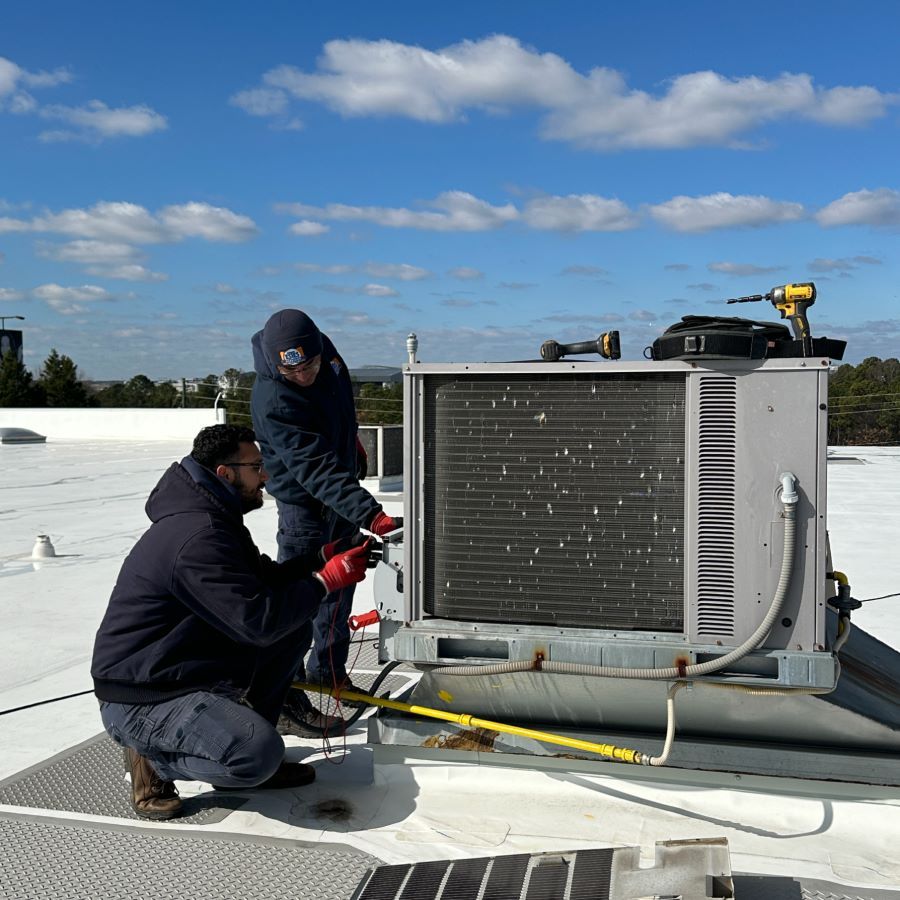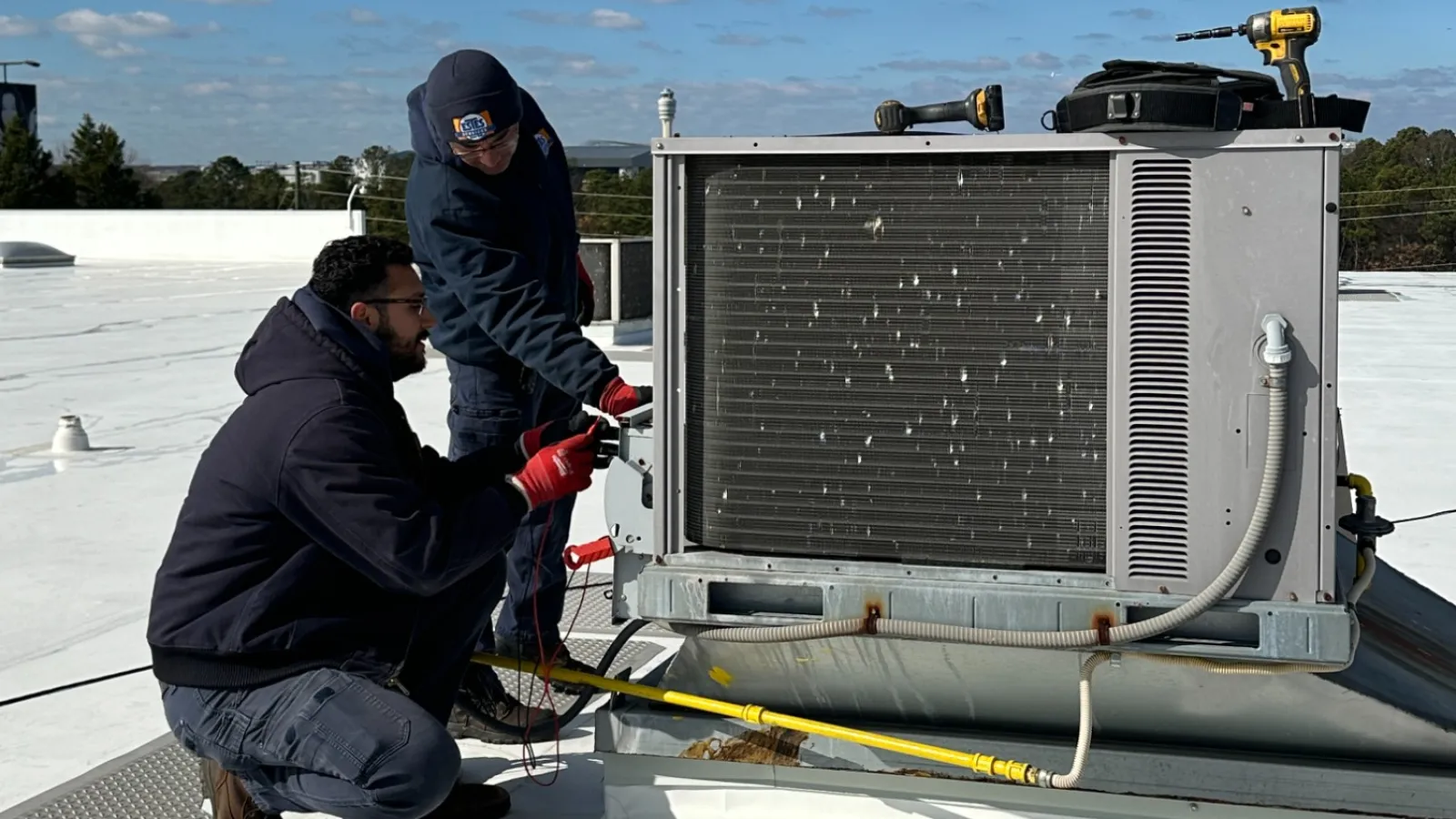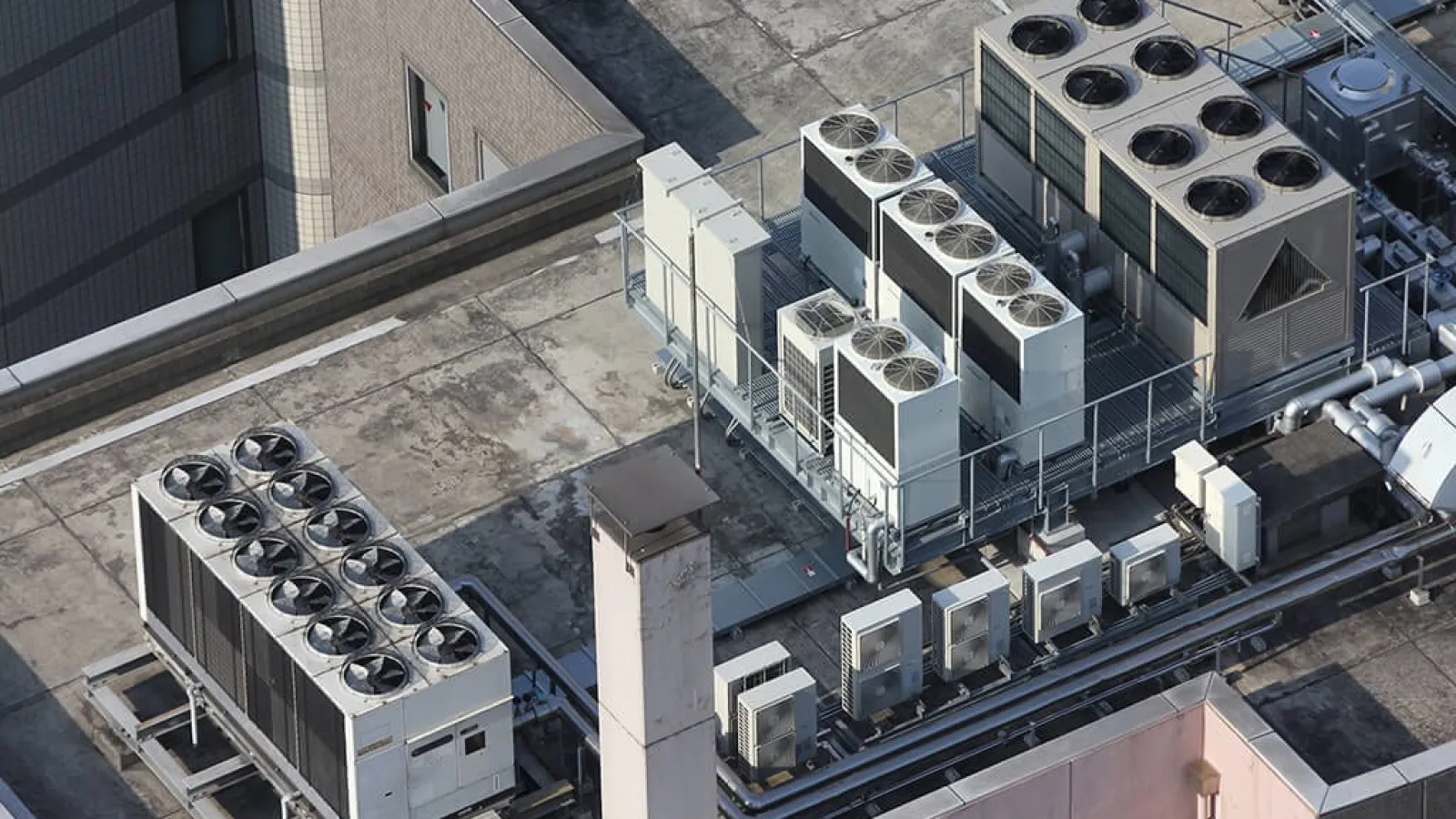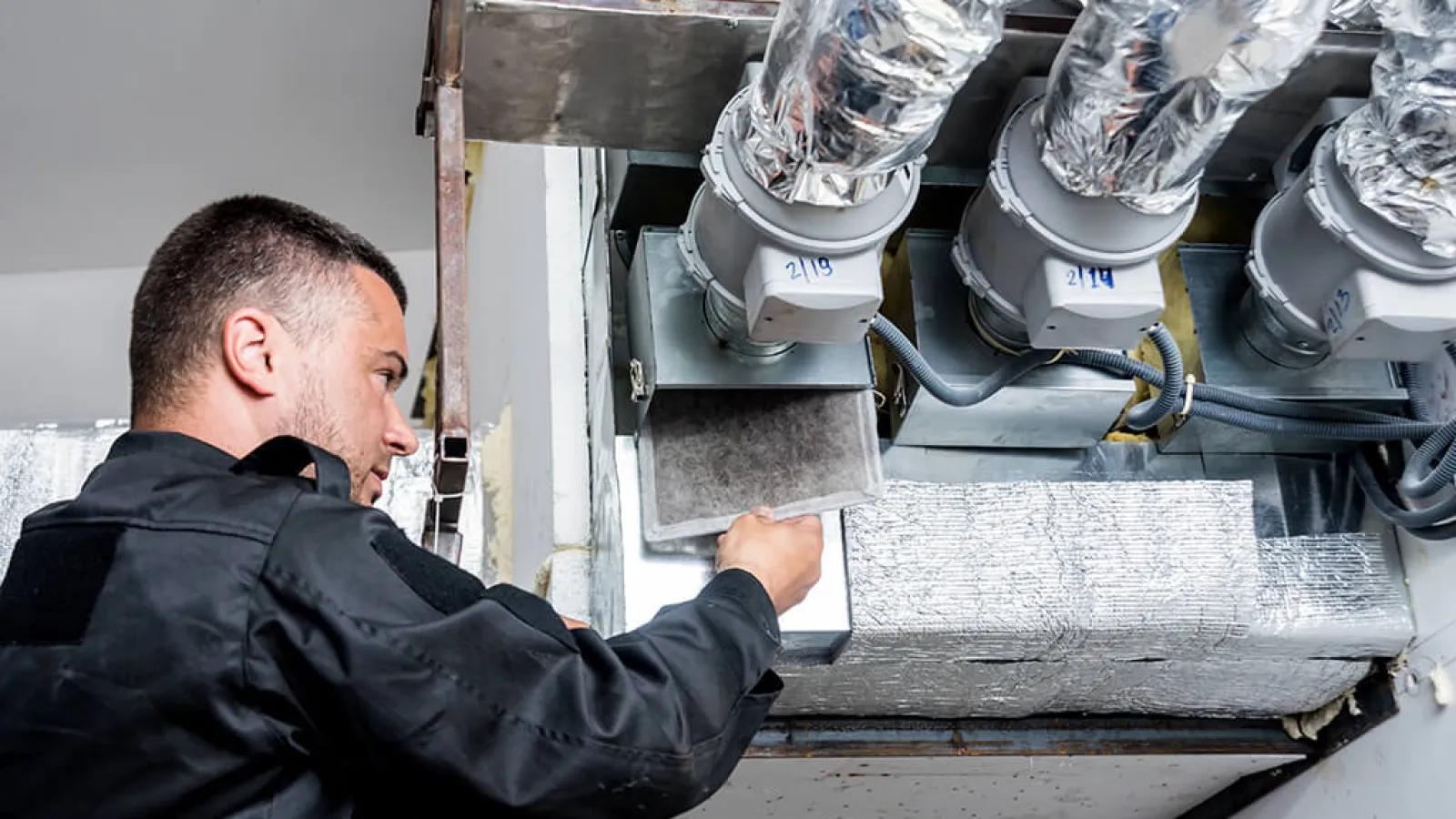Your commercial HVAC equipment serves a critical role in providing optimal comfort solutions for building occupants. Prioritizing equipment uptime through preventative maintenance is necessary for more productive and efficient operations.
Reactive maintenance to unforeseen HVAC equipment downtime reduces your facility's productivity capacity, resulting in increased operational costs. Like all systems, your commercial HVAC equipment endures wear and tear, as it continuously runs and experiences heavy loads.
That's why it's important to have a proactive preventative maintenance plan in place to help your equipment perform at optimal levels. The most common repairs can affect business operations if the signs for repair are ignored. Likewise, some of the smallest problems can be the most detrimental if left unnoticed.
In this article, we will discuss the four main repairs for commercial HVAC and the signs to watch out for to ensure your facility's equipment is running smoothly.
Heat Exchanger
A common HVAC repair issue is with the heat exchanger. Common signs that may be indicative of it needing repair include corrosion; a decrease in performance; and/or visual cracking.
Heat exchangers help provide good temperature control in buildings and facilities where precise temperature control is needed. At its core, a heat exchanger contains two separate fluid paths within an outer shell—one side with hot fluids and the other with cold fluids that never mix.
Your facility's heat exchanger endures both high temperatures and pressures throughout its operational life, which can degrade its structural integrity. Over time, this can lead to corrosion and, in more severe instances, cracking of the components.
A cracked heat exchanger poses a serious safety concern for your building and its occupants, as it can leak carbon monoxide into your facility. When cracks are detected, repairs typically involve either replacing just the heat exchanger or, in some cases, needing an entire commercial heating replacement.
-
Compressor Issues
The compressor is one of the most critical components in your building's HVAC system. It is responsible for circulating and pressurizing the refrigerant in your system.
Oftentimes, issues associated with the compressor may be linked to other faulty components in your system. A refrigerant leak can cause the compressor to work harder than usual to reach the correct temperatures.
As we discuss later in this article, prolonging a refrigerant leak can be detrimental to the valves and pistons that are vital to the cooling process.
Poor maintenance, refrigerant leaks, and electrical issues are just some of the many ways your compressor might underperform.
Some of the signs for a faulty compressor include warm air, strange noises, and reduced airflow. Loud, strange noises, also known as "scrambled compressor," can damage your unit if left unnoticed.
Oil Issues
Oil in your commercial HVAC system lubricates moving parts and prevents excessive friction that can damage your equipment. Without proper oil levels, your system can experience increased wear—or worse, more prone to breakdowns and failure.
Common oil issues include contamination from refrigerant or moisture, improper oil levels, and oil degradation over time. These problems reduce the oil's ability to properly lubricate critical components, especially in the compressor.
Signs of oil issues include unusual vibrations, increased energy consumption, and higher operating temperatures. Regular maintenance can help prevent these issues before they turn into bigger problems.
-
Leak Repair of Refrigerant
Refrigerant in your commercial HVAC is essential in cooling your building. If a leak is present, this can lead to a reduction in the system's ability to adequately cool your building.
If a refrigerant leak is not addressed through routine maintenance, your system's components can be at great risk, including the compressor.
The cooling process is a closed-loop system, and all components depend on each other to operate. Low refrigerant in a system causes the overall system to work harder and run longer to meet necessary temperatures.
This leads to an increase in energy consumption, excessive wear on the system, and inadequate cooling. The common signs of a refrigerant leak include hissing noises, ice over the coils, and a lack of cooling in the building.

Schedule Commercial HVAC Consultation Today
Well, there you have it: the four most common repairs in commercial HVAC. If you notice any of these signs at your Atlanta building or facility, it is time to schedule a consultation with our commercial HVAC experts today.
We are your local, family-owned, and operated commercial HVAC experts proudly serving the Atlanta area since 1949.



